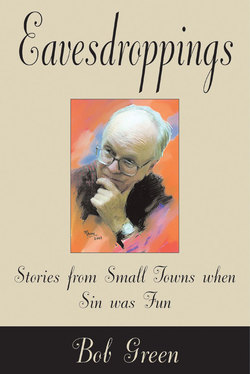Читать книгу Eavesdroppings - Bob Green - Страница 16
На сайте Литреса книга снята с продажи.
Оглавление8 Yes, Suh, No, Suh
During the Depression of the 1930s, a lot of guys hung out at Tate’s Smoke Shop near the delta on Water Street. There wasn’t much else to do. Tate liked company and set two benches outside and two inside for the men to sit. The outside men handled the gas pump, took in the cash, and carried out the change. Tate considered it beneath his dignity to do this. He was a respected businessman. A bookie, in fact.
Bing McCauley recalls riding his tricycle to Tate’s to play his harmonica for treats. “Little Brown Jug” was good for an ice-cream cone, and “Melancholy Baby” might bring a chocolate bar. Sometimes one of the men would join him on the spoons. Another might sing or do a little jig.
Bing says Tate always wore a fedora on the back of his head, though he never stepped outside. And he called everybody “suh.”
“Yes, suh. Thank you, suh.” That was about the limit of his conversation except when he talked about the horses. When a woman not familiar with the shop was addressed as “suh,” she would look around to see if he was talking to a man behind her. Then she would hurry out the door. “Thank you, suh,” Tate would holler after her.
Bing, who developed into an accomplished jazz piano player, credits Tate’s Smoke Shop with launching his musical career.
